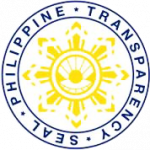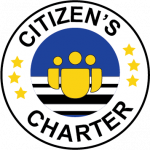- GOVPH
- About BOC
- Issuances
- Aduana Library
- Memoranda
- Memoranda for Reference Values
- Customs Administrative Order (CAO)
- Customs Administrative Order (CAO) 2025
- CUSTOMS ADMINISTRATIVE ORDER (CAO) 2024
- Customs Administrative Order (CAO) 2023
- Customs Administrative Order (CAO) 2022
- Customs Administrative Order (CAO) 2021
- Customs Administrative Order (CAO) 2020
- Customs Administrative Order (CAO) 2019
- Customs Administrative Order (CAO) 2018 and Older
- Customs Memorandum Order (CMO)
- Customs Memorandum Circular (CMC)
- Customs Memorandum Circular (CMC) 2025
- Customs Memorandum Circular (CMC) 2024
- Customs Memorandum Circular (CMC) 2023
- Customs Memorandum Circular (CMC) 2022
- Customs Memorandum Circular (CMC) 2021
- Customs Memorandum Circular (CMC) 2020
- Customs Memorandum Circular (CMC) 2019
- Customs Memorandum Circular (CMC) 2018 and Older
- Customs Special Order (CSO)
- Custom Training Circular (CTC)
- Joint Memorandum Orders (JMO)
- Trade
- News Room
- Port Updates
- HR Corner
- Quicklinks
- Infographics
- Bureau of Customs Webinar
- Auction and Sales
- Bid Opportunities
- Invitation to Bid / Request for Quotation / Invitation for Negotiated Procurement / Notice to Conduct Direct Contracting – 2023
- Invitation to Bid / Request for Quotation / Invitation for Negotiated Procurement / Notice to Conduct Direct Contracting – 2022
- Invitation to Bid / Request for Quotation / Invitation for Negotiated Procurement / Notice to Conduct Direct Contracting – 2021
- Invitation to Bid / Request for Quotation / Invitation for Negotiated Procurement / Notice to Conduct Direct Contracting – 2020
- Invitation to Bid / Request for Quotation / Invitation for Negotiated Procurement / Notice to Conduct Direct Contracting – 2019
- Invitation to Bid / Request for Quotation / Invitation for Negotiated Procurement / Notice to Conduct Direct Contracting
- Bid Documents
- Bid Supplement
- Summary of Awarded Contracts
- Summary of Contracts Awarded 2023
- Summary of Contracts Awarded 2022
- Summary of Contracts Awarded 2021
- Summary of Contracts Awarded 2020
- Summary of Contracts Awarded 2019
- Summary of Contracts Awarded 2018
- Summary of Contracts Awarded 2017
- Summary of Contracts Awarded 2016
- Summary of Contracts Awarded 2015
- Summary of Contracts Awarded 2014
- Summary of Contracts Awarded 2013
- Annual Procurement Plan
- Customs Knowledge Resources
- References
- Gender Equality and Diversity
- Philippine National Trade Repository
- Philippine Tariff Finder
- Authorized Economic Operator
Customs Plugs Revenue Leaks from Undervalued Freight Declarations
Customs Commissioner Angelito Alvarez has ordered the adoption of worldwide freight rate reference for containerized cargoes to deny tax cheats one of their age-old tricks for duties and taxes avoidance.
Alvarez said the Bureau of Customs was losing more than P1.3 billion a year from freight undervaluation due to absence of a reliable reference rate which the agency’s assessment personnel could use to check under-declarations in freight charges.
Until recently, mere photocopies of the bill of lading submitted by the importer/broker were accepted by customs assessment personnel as valid supporting documents in import entry declarations.
“More often than not”, disclosed Alvarez, “the photocopies of bills of lading being received by customs personnel did not reflect the actual transportation costs paid for the importation, thereby resulting in revenue loss.”
According to the customs chief, a complete list of conference freight reference covering 280 ports from 70 countries has empowered BOC assessment personnel to detect wrong entries in transport cost declarations.
The list was provided by the Philippine Shippers’ Bureau (PSB), an agency under the Department of Trade and Industry.
Sample documents retrieved by the study team commissioned by Alvarez revealed that some importers declared a transport cost of only US$50 for a 20 footer container from Kaoshiong in China to Manila when in truth, the prevailing rate as attested to by PSB-accredited freight forwarders was US$150.
It will be noted that transport cost is a component of the dutiable base upon which the tariff rates are applied.
“Any attempt to understate the correct amounts of the various components like the cost of transporting the imported goods will impact into the dutiable base and eventually affect the agency’s tax take,” Alvarez added.
Aside from improving revenue collection efficiency, the reliance on worldwide freight reference rate, said Alvarez, “will help strengthen the agency’s documentary controls and enhance the capability of its post-entry review offices like the Liquidation and Billing Division at the ports and the Post-Entry Audit Group (PEAG) at the BOC central office.”
The post-entry function of the Bureau is intended to help detect some additional cost or price adjustments which should have been declared and computed as part of dutiable value and landed cost by importers but which they did not.
ABOUT GOVPH
All content is in the public domain unless otherwise stated.






